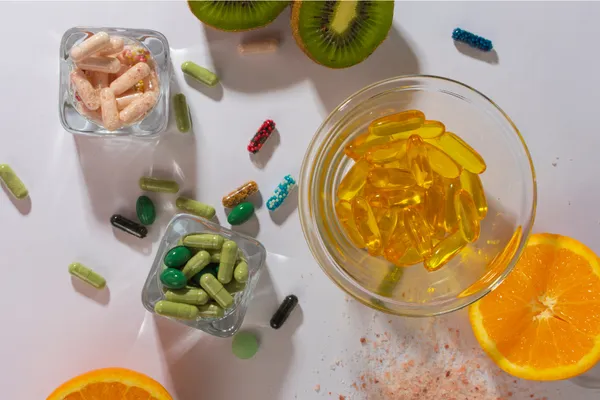
Collagen & Its Alternatives: What Helps Skin, Joints & Healing in 2025
Collagen & Its Alternatives: What Helps Skin, Joints & Healing in 2025
Written by Elle Sproll
After cancer, or really any health challenge, you start to see your body a little differently. You notice the aches in your joints, the change in your skin’s glow, or how long it takes to heal from even small things. And naturally, you want to feel more like yourself again.
Collagen often comes up in these conversations—with clients asking me if it’s worth taking, which brand to choose, or what natural alternatives are out there. So let’s break it down together.
In this blog, we’ll explore collagen supplements in Australia (2025), the best natural ways to support your skin and joints, and what actually helps with healing—especially if you’re recovering, rebuilding, or just trying to live well without burnout.
What Is Collagen, Really?
Collagen is the most abundant protein in your body. Think of it as your body’s scaffolding—it gives structure and support to your skin, joints, tendons, ligaments, and even your gut lining.
But from around your mid-20s (and especially after health stress like cancer treatment, menopause, or chronic inflammation), your body naturally starts to produce less collagen.
Signs of collagen decline include:
Fine lines and dry or sagging skin
Stiff or aching joints
Slower wound healing
Gut discomfort or bloating
So the big question is: can we bring it back? And if so—how?
Are Collagen Supplements Worth It?
In short: they can help—but they’re not magic.
Many collagen powders on the market today use hydrolysed collagen peptides from bovine (cow), marine (fish), or chicken sources. These break down collagen into smaller proteins your body can absorb and use to rebuild tissue.
Some studies suggest benefits like:
Improved skin hydration and elasticity
Reduced joint pain or stiffness
Better post-exercise recovery
But here’s the key: your body needs more than just collagen powder to do the repair work.
That’s where wholefood nutrition, natural boosters, and supportive habits come in.
Natural Ways to Boost Collagen (With or Without Supplements)
If you don’t want to rely on powders—or just want to get the most out of your routine—these foods and nutrients can help your body produce and protect collagen naturally.
Vitamin C-Rich Foods
Essential for collagen synthesis. Without it, your body literally can’t build new collagen.
Include:
Citrus fruits, kiwi, strawberries
Capsicum, broccoli, leafy greens
Silica & Zinc
These minerals help support skin healing, hair growth, and connective tissue strength.
Found in:
Cucumber (skin on), oats, brown rice (silica)
Pumpkin seeds, lentils, seafood (zinc)
Protein & Amino Acids
Your body needs amino acids (like glycine and proline) to rebuild collagen.
Include:
Eggs, tofu, bone broth, legumes, chicken, tempeh
Antioxidants to Protect Collagen
Stress, sun exposure, and toxins can break down collagen faster.
Top choices:
Berries, green tea, turmeric, extra virgin olive oil
Bone Broth (or Plant-Based Broth + Collagen Support)
For those who enjoy traditional remedies, bone broth is rich in gelatin (a natural collagen source). If you’re plant-based, look for mushroom or seaweed broths with collagen-supportive nutrients.
Collagen Alternatives for Skin & Joints (Beyond Powders)
If powders aren’t your thing, you still have options.
Natural Remedies for Skin and Joints
Hyaluronic Acid (HA): Helps skin retain moisture and supports joint lubrication. Available in capsules or serums.
Turmeric + Black Pepper: Natural anti-inflammatory combo to support joints and skin health.
MSM (Methylsulfonylmethane): Found in joint support supplements—helps reduce inflammation and pain.
Vitamin E & CoQ10: Antioxidants that support skin cell repair and collagen protection.
A Few Quality Collagen Supplements in Australia (2025)
If you’re after a supplement to complement your routine, here are a few options Australian women are loving this year:
Nutra Organics Collagen Beauty: Marine collagen with added zinc, C, and biotin
JSHealth Vitality X + Collagen: Popular blend with sustainably sourced collagen and skin-loving nutrients
The Beauty Chef Collagen Inner Beauty Boost: A plant-based, fermented liquid that supports collagen synthesis (vegan-friendly)
As always—check ingredients, look for brands that prioritise sustainability, and speak with your health professional before starting anything new.
Be Gentle With Your Body
Whether you’re taking collagen, sipping broth, or just trying to eat a bit more mindfully—remember: healing isn’t about chasing youth or perfection.
It’s about rebuilding strength, resilience, and radiance in a way that feels aligned with your body, your values, and your stage of life.
If you’re recovering from cancer, your skin and joints may feel different than before. That doesn’t mean they’re “broken.” It means they need care, consistency, and a little extra support.
Want Personalised Help Choosing What’s Right for You?
If you’re not sure whether collagen is right for your body, or you’d like support with choosing supplements and foods that support healing, I’d love to help.
As a women’s health coach and cancer survivor, I support women through recovery and beyond—with practical, compassionate advice tailored to your goals.
Book your free initial call here and let’s gently support your skin, joints, and healing from the inside out.
